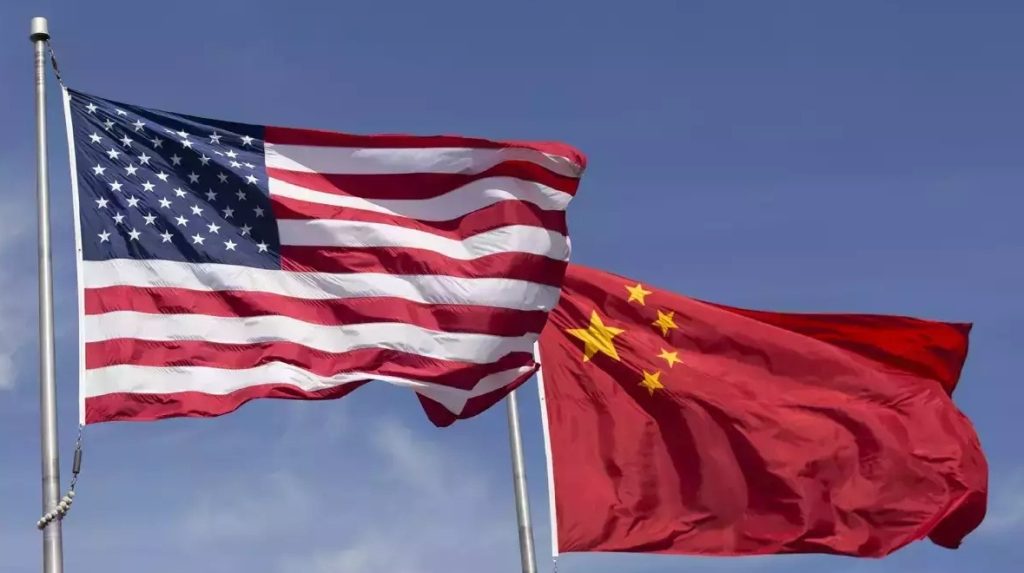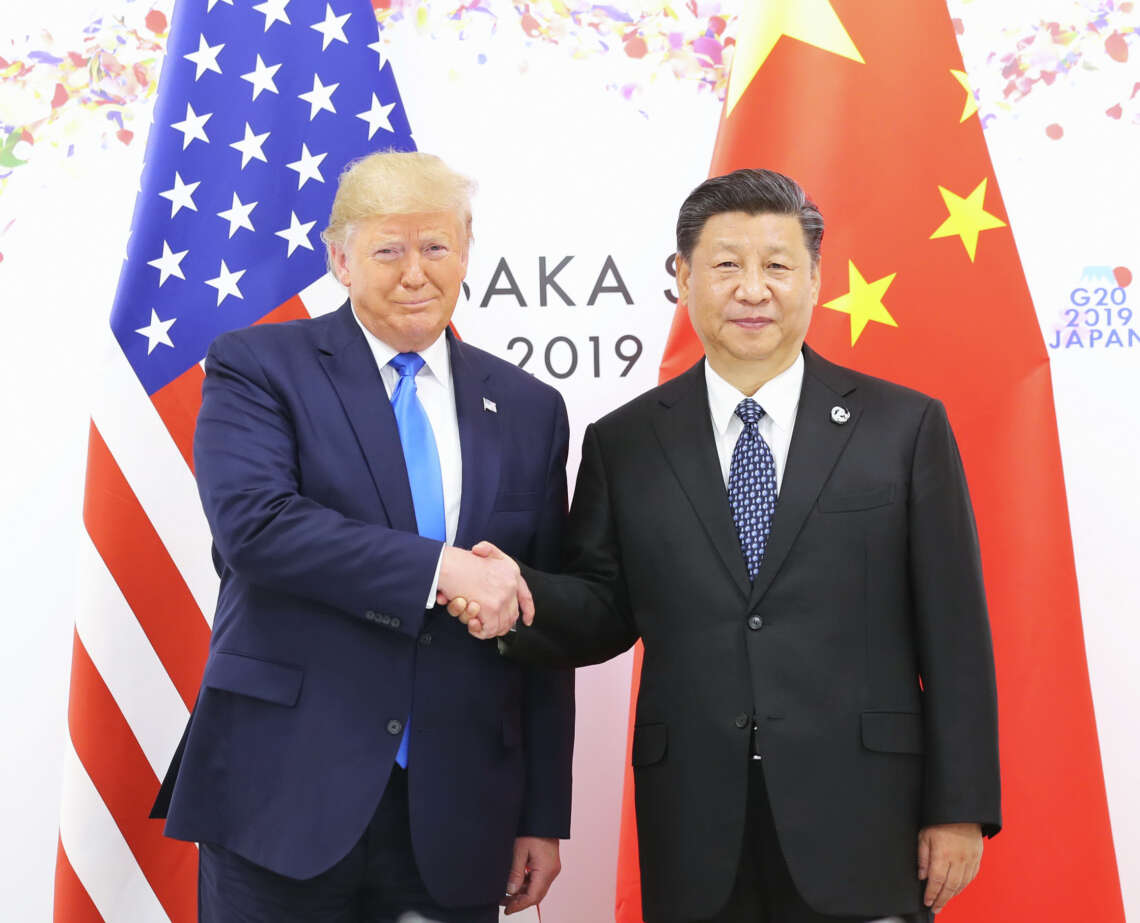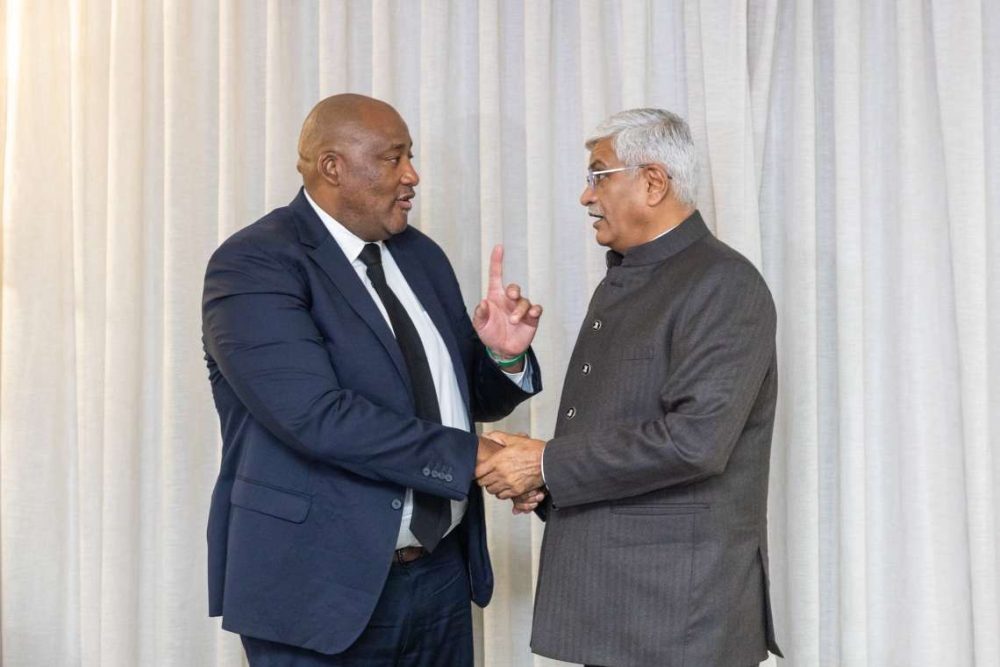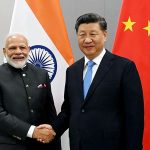Trump and Xi strike conciliatory tone in Busan, hinting at a trade deal amid tariff disputes, fentanyl talks, and Trump’s shock nuclear weapons testing order….reports Asian Lite News
In their first face-to-face meeting since Donald Trump’s return to the White House, the US President and Chinese President Xi Jinping struck a cautiously optimistic tone on Thursday in Busan, South Korea, hinting at progress towards a potential US-China trade deal.
The bilateral meeting, held on the eve of the 32nd APEC Economic Leaders’ Meeting in Gyeongju, has drawn global attention for its potential to reshape the world’s two largest economies’ fragile relationship after years of escalating trade and geopolitical tension.

Trade deal possibility
When asked by a reporter whether a trade deal could be signed during his meeting with Xi, Trump replied cryptically, “Could be.” Moments later, he added, “We all have a great understanding. I think we’re going to have a fantastic relationship for a long period of time, and it’s an honour to have you with us.”
Calling Xi a “very tough negotiator,” Trump noted that the discussions would centre on long-standing disputes, including tariffs, technology transfers, and rare earth exports. The talks, according to senior US officials, were designed to “reset expectations” and stabilise relations following months of tit-for-tat economic actions.
Trump, in his usual showman style, posted on Truth Social referring to the engagement as the “G2 meeting”, underlining Washington and Beijing’s dominance over other global blocs such as the G7 and G20.
Xi calls for cooperation over confrontation
Chinese President Xi Jinping echoed a more conciliatory message in his opening remarks. “Since your re-election, we have spoken three times and exchanged several letters. It feels very warm seeing you again,” Xi said.
He admitted that friction between Beijing and Washington was “normal” given their economic might but stressed the need to steer ties in the “right direction.”
“In the face of winds, waves, and challenges, we should stay on course and sail steadily the giant ship of China-US relations,” Xi said. “Our countries are fully able to help each other succeed and prosper together. China and the US should be partners and friends — this is what history taught us and reality demands.”
Xi revealed that the two countries’ economic teams had achieved a “basic consensus” on major concerns, paving the way for tangible progress on trade and economic issues.
Tariffs, TikTok, and trade
The discussions came amid an atmosphere of both hope and caution. The Biden-era tariff measures, retained and expanded under Trump’s second term, have hit Chinese exports hard, while Beijing’s curbs on rare earth shipments have disrupted American industries.
US negotiators outlined a series of priorities before the talks, including controlling the flow of fentanyl into the United States, ensuring TikTok’s divestiture from its Chinese parent company ByteDance, and reducing China’s monopoly on rare earth exports vital to US manufacturing.
According to sources cited by Al Jazeera, the potential deal may include a deferral of China’s export controls, rollback of additional US tariffs, and Beijing’s commitment to increase agricultural imports from the United States — particularly soybeans.
Speaking aboard Air Force One, Trump told reporters he believed an agreement would “solve a lot of problems,” including fentanyl production. “I expect to be lowering that because I believe that they’re going to help us with the fentanyl situation,” he said.
Nuke order overshadows talks
However, Trump’s announcement just hours before the meeting cast a shadow over proceedings. In a dramatic post on Truth Social, he revealed that he had instructed the Department of War to resume nuclear weapons testing, claiming the move was necessary to match other countries’ activities.
“The United States has more nuclear weapons than any other country,” he declared. “Because of other countries’ testing programmes, I have instructed the Department of War to start testing our nuclear weapons on an equal basis. That process will begin immediately.”
The timing of the announcement startled diplomats, with some analysts interpreting it as a pressure tactic aimed at reminding Beijing of Washington’s strategic edge. Others viewed it as a domestic show of strength ahead of the APEC summit.














